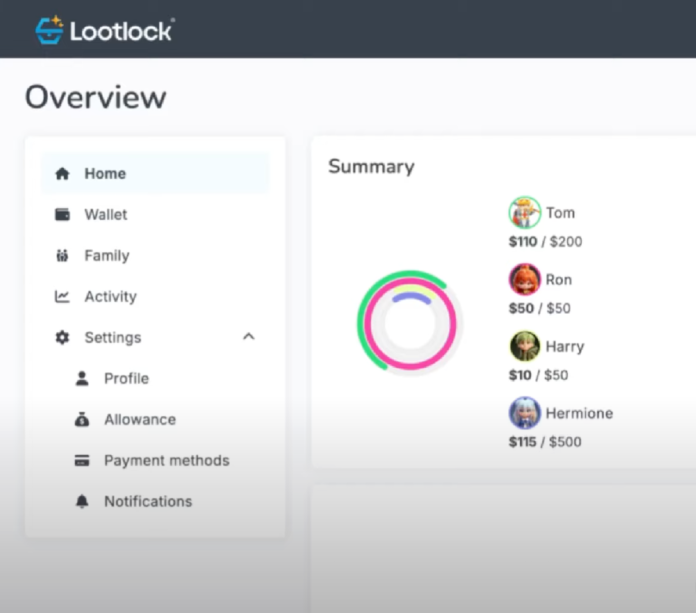Nick Pompa, founder of Lootlock — an app that prevents kids from running up unauthorized gaming bills on their parents’ credit cards — is an avid gamer and software developer working in fintech.
As a dad of two under two, he’s looking forward to sharing his passion for gaming with his kids when they grow old enough to play. He started gaming at age 6, he told TechCrunch. Lootlock was selected for TechCrunch’s 2025 Startup Battlefield 200 and will be exhibiting at TechCrunch Disrupt, October 27 to 29 in San Francisco.
As he gabbed about gaming with other parents, or simply read the news, he kept hearing horror stories of kids shackling their parents with surprise credit card bills, sometimes unwittingly running up thousands of dollars.
The gaming industry has a notoriously slimy side of using “design tricks,” as the Consumer Financial Protection Bureau described last year. They often target children, enticing them into unlocking fee-incurring game features. Other agencies, like the FTC have issued similar warnings.
“The gaming industry uses clever design, social engineering, and player tracking to encourage kids to spend more money while playing,” Pompa said. “I am an avid gamer, so I have seen firsthand the drastic shift to micro-transactions in the industry over the last eight to nine years.”
Although the FTC did force Fortnight earlier this year to refund $126 million to people who filed claims, that’s rare. Parents generally have no recourse but to pay.
The typical advice is for parents to use device-level parental controls that block in-app purchases. But, Pompa said, many of his parent friends are fine with letting kids spend a little money on such purchases, under the right conditions.
Techcrunch event
San Francisco
|
October 27-29, 2025
He told the story of the friend named Joe that inspired Pompa to build Lootlock. Joe is a dad to three kids, all avid gamers. Joe gives each kid an allowance every month, and the kids were using the money to buy gaming products, setting up a ridiculous system where he handed them allowance cash and they handed it back to pay the credit card. And he had to monitor their purchases closely.
Looklock lets parents automatically load a digital, prepaid credit card, issued by Lootlock’s partner, Transcard, that kids add to their device’s digital wallet.
Parents can automate a set amount of allowance to be added to the card, say weekly or monthly, and can then make any portion of that not immediately available. The kid can unlock more as they, for instance, complete their chores. Parents can approve increases to the card through a text message.

“We’re giving the parents super granular controls on how their kids can spend and when their kids can spend,” Pompa said.
Lootlock is gamifying chores, too, with an upcoming feature that will be available in October called “bounty boards.” Parents set up these boards which are essentially lists of the child’s chores. As the kids complete them — cleaning their room, pet care, etc. — they earn a “bounty.” And when they hit whatever threshold of bounties a parent sets, the app will unlock additional allowance to spend.
There’s also a gamified financial education component. Kids choose an avatar and as they practice good spending habits, like checking their Lootlock dashboard which tells them their account balances, they earn points that add up to equipment for their avatar: swords and armor, etc. Their avatar is persistent across anywhere Lootlock integrates into, like its Discord servers.
“We’re tying all of the financial concepts into a video game concept,” Pompa said.
Lootlock balances are also restricted to spending only on gaming products and can’t be used for other purchases on the internet. So parents don’t have to closely monitor what kinds of items the child is buying online. The idea, for now, is to focus on teaching children responsible gaming.
The startup currently employs seven people and is fully bootstrapped.
If you want to learn from Lootlock firsthand, and see dozens of additional pitches, valuable workshops, and make the connections that drive business results, head here to learn more about this year’s Disrupt, held October 27 to 29 in San Francisco.

Source link





